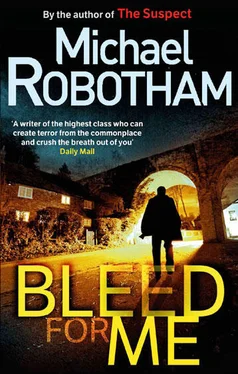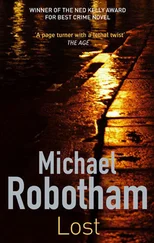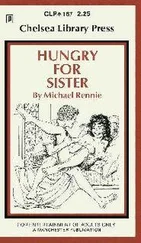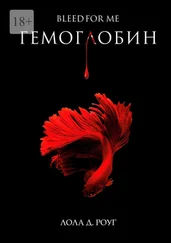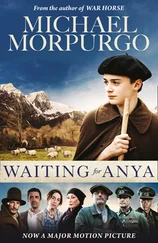‘But the photographs in the suitcase . . . ?’
‘Someone took pictures of jurors - it’s not enough. You need evidence of a juror being approached or intimidated. Payments. Threats. Admissions . . .’
Ruiz stands and works the stiffness out of his back. His body looks too big for his clothes.
‘So there’s nothing we can do?’
‘Not without evidence.’
His eyes hold mine for a long time, blue-grey and uncomplicated. They seem to belong in the face of a younger man - a police constable who began his career more than thirty years ago, full of expectation and civic pride. A lot of water has passed under that bridge - violence, corruption, scandal, banalities, mediocrities, absurdities, insanities, hawks, doves, cowards, traitors, sell-outs, hypocrites and screaming nut-jobs - but Ruiz has never lost his faith in humanity.
I’m tired. Dirty. Weary of talking. My mind is full of fragments of broken lives - Ray Hegarty’s, Sienna’s, Annie Robinson’s . . . I want to go home. I want a shower. I want to sleep. I want to put my arms around my daughters. I want to feel normal for a few hours.
Ruiz drops me at the terrace and turns off the engine of the Merc, listening to the afternoon quiet and the ticking sound of the motor cooling. Ugly dark clouds are rolling in from the west, moving too quickly to bring rain.
‘I thought maybe I’d head back to London,’ he says. ‘Water the plants.’
‘You don’t have any plants.’
‘Perhaps I’ll take up gardening. Grow my own vegetables.’
‘You don’t like vegetables.’
‘I love a good Cornish pasty.’
Wrinkles are etched around his eyes and his slight jowls move with his jaw.
I ask him to hang around for another day - just to see what happens. Maybe I’m being selfish, but I like having him here. With Ruiz what you see is what you get. He’s a man of few contradictions except for his gruff exterior and gentle centre.
Ever since I was diagnosed and moved out of London, I seem to have lost touch with most of my long-time friends. They call less often. Send fewer emails. Ruiz is different. He has only known me with Parkinson’s. He has seen me at my lowest, sobbing at my kitchen table after Charlie was abducted and Julianne walked out on me. And I have seen him shot up, lying in a hospital bed, unable to remember what happened yesterday.
As I get older, friendships become harder to cultivate. I don’t know why that is. Perhaps by middle age most people have enough friends. We have a quota and when it’s filled we have to wait for someone to die or retire to get on the list.
Glancing at his watch Ruiz suggests it might be ‘beer o’clock’. He waits while I shower and change before we walk as far as the Fox and Badger where I leave him with his elbows on the bar, gazing at a pint of Guinness turning from a muddy white to a dark brown.
Emma is due out of school. Standing on my own I watch the mothers and grandmothers arrive.
‘Billy wasn’t at school today,’ says Emma, when she falls into step beside me. ‘I think he was sick.’ Then she adds, ‘I think I should be allowed more sick days, otherwise it isn’t fair.’
‘You shouldn’t want to be sick.’
‘I don’t want to be sick. I just want the sick days.’
Charlie gets home just after four. She doesn’t mention Gordon Ellis but I know his arrest must have been texted, tweeted and talked about at school. She makes herself toast and jam for afternoon tea.
‘How are you?’
‘Fine.’
‘You want to talk about anything?’
‘Nope.’
‘Are you sure?’
She rolls her eyes and goes upstairs.
At six o’clock I walk the girls down to the cottage. Julianne is home. She’s showered and changed and is cooking dinner. Her wet hair hangs out over her dressing gown.
‘I saw you today,’ she says. ‘What was Sienna doing in court?’
I don’t know how much I should tell her. Nothing is probably safest.
‘Ronnie Cray wanted to show her something.’
‘What?’
‘I can’t really tell you.’
Julianne gives me one of her looks. It reminds me of how much she hates secrets. Then she shakes it off, refusing to let me spoil her good mood.
‘Well, my job is done,’ she says, sounding pleased. ‘Marco finished testifying. He was amazing. They threw everything at him. They tried to confuse him and trick him and say he was lying. It was horrible. I hope the jury saw it. I hope they hated that lawyer for what he did.’
‘He was doing his job.’
‘Don’t defend him, Joe. I know you’re a pragmatist, but don’t defend someone like that.’
She takes Emma’s schoolbag from me. I’m standing in the kitchen, which seems to lurch suddenly and I stagger sideways. Julianne grabs me and I straighten.
‘Are you all right?’
‘I’m fine. I haven’t slept.’
Mr Parkinson is shape-shifting on me, messing up my reactions to the medications. The segues between being ‘on’ and ‘off’ my meds have become shorter.
Julianne makes me sit down and begins scolding me about not taking care of myself. At the same time she fills the kettle and makes me a cup of tea.
Wanting to change the subject, I tell her about Annie Robinson, keeping one eye on the stairs in case Charlie overhears me. At six o’clock we turn on the TV to watch Gordon Ellis answering questions on the steps of Trinity Road.
‘I can’t believe he really did it,’ says Julianne. ‘And I let Charlie babysit for him.’
‘You weren’t to know.’
She shivers slightly and her shoulder brushes mine.
‘Can I ask you something?’ I ask.
‘What’s that?’
‘Judge Spencer - what’s he been like?’
She looks at me oddly. ‘Where did that come from?’
‘Do you think he’s favouring one side or the other?’
‘Why?’
‘It’s just a question.’
She studies me momentarily, knowing that I’m holding something back.
‘He’s a grumpy old sod, but he seems pretty fair. He’s very nice to the jury. I think he feels sorry for them. It’s a pretty horrible case . . . seeing those photographs of burnt bodies.’
‘Has he disallowed any evidence?’
‘I don’t get to hear the legal arguments.’
‘What happens now?’
‘The prosecution has finished. The defence begins calling witnesses tomorrow.’ Julianne turns down the volume. ‘I just hope they get found guilty and Marco can get on with the rest of his life.’
‘What is he going to do?’
‘He wants to go to London. Friends have offered to put him up and help find him a job. He’s applied for university but that’s not until the autumn.’
For a few moments we sit in silence. Julianne picks at lint from the sleeve of her sweater.
‘Would you like to have dinner with us?’ she asks. ‘Or maybe you’d prefer to go home and sleep?’
‘No.’
She stands and pirouettes away from me before I try to read anything into the invitation. Summoning the girls, she serves dinner and we sit together at the table like a proper family, or like proper families in TV commercials for Bisto and frozen vegetables. It feels familiar. The familiar is what I crave.
It cannot last, of course. Charlie has homework. Emma has bedtime. Julianne says I can read Emma a story but I fall asleep halfway through it. An hour later, Julianne shakes me awake, holding her finger to my lips.
The dishwasher is humming as I come downstairs. The TV turned down low.
‘I’ve been thinking about what you said about the divorce,’ I say.
Julianne closes her eyes and opens them again, looking in an entirely different direction. She elevates her face. ‘And?’
‘I think you think it’s going to change things, but you don’t get rid of baggage, you take more on.’
Читать дальше
